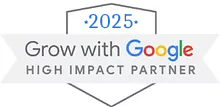Email Marketing: Why It Works For Healthcare Practices
One of the best marketing tools for healthcare practices is email. This marketing strategy combines the power of e-commerce and personalization. It works as a personal connection and a business tool at the same time. Email marketing helps you stay in touch with your previous, current, and prospective clients, lets you promote new products and services, get feedback, and build trust with them.
What Is Email Marketing?
Email marketing is a critical part of your practice’s marketing strategy. It is a strong marketing channel utilized to encourage client loyalty through personalized email blasts while promoting your practice’s services and products.
It can also be used to keep your patients engaged with purposeful and informative content when they are not making appointments or purchases.

Why it Works in the Healthcare Industry
Email Marketing is one of the most reliable ways to communicate with your patients and prospective clients making it a great way to build relationships with your patients.
Email is an effective way to communicate with your patients about their care: it is personal, timely, and easily accessible by both parties whenever needed. So when you send out an email newsletter or appointment reminder email, you are ensuring that you are keeping them engaged in their own healthcare journey while making them feel like they are getting the best possible care from your practice.
Types of Email Marketing
Email marketing is a great way to get your message in front of your patients, and the more you know about it, the better you can use it to your advantage.
It comes in a variety of forms and can be tailored to fit almost any business. Here is a quick overview of some of the most common types of email marketing.
Welcome Emails
A welcome email is sent out to new contacts. This type of email gives you an opportunity to make a “good” impression on a prospective or current client by letting them know of your practice’s values, services, products, and overall message. It is estimated that welcome emails have 84% higher open rates than other types of marketing emails.

Newsletter Emails
A newsletter email is sent out for the purpose of sharing information about your practice, new services or products, medical news, treatment breakthroughs, and emerging research.
Newsletters are sent out regularly, usually weekly or monthly. They are designed to keep patients up-to-date on information they need to know about your practice.
Lead Nurturing Emails
Lead nurturing emails are typically sent out to patients who have shown some interest in your products or services but have not yet made an appointment or a purchase. These clients might be interested in buying something, but they might also just want more information about what you offer before they commit to anything.
Lead nurturing emails give you a chance to demonstrate this commitment by answering their questions and addressing their concerns through informative content.

Seasonal Marketing Emails
Seasonal marketing emails in healthcare are a great way to take advantage of the holidays and other seasonal events to boost your client engagement, brand awareness, and sales. These emails have higher open rates right before the holiday.
What Parts of the Email Should You Always Improve on?
The most important part of an email marketing campaign is the start and the end. Your subject line and your call to action (CTA).
You can have a perfectly crafted email, with compelling content and an eye-catching design. But if you are not successful in capturing your reader's attention in the subject line, they probably will not open it.
An effective CTA motivates people to take action once they open a message. You want them to click whether that is for making an appointment, a request for feedback, or more.
Keep In Mind
If you are using email marketing for your healthcare practice, there are certain things you need to remember:
Be Aware of National Email Regulations
It is important to have knowledge of the email regulations in your area and make sure you follow legal requirements when sending emails. For example, the CAN-SPAM Act requires the inclusion of an opt-out mechanism, an identification of the message as an ad, and more.
Remain HIPAA compliant
If you are in the healthcare industry, you know how important it is to remain HIPAA compliant. This also applies to using marketing tools such as email.
While it may seem like an obstacle to leveraging email as your marketing tool, it is important to remember that these regulations are in place to protect you and your patients.
In the long run, making your emails more personal and engaging is a surefire way to attract and retain new clients. Think of your emails as an opportunity to get to know your target market on a more personal level, and enjoy increased success as a result.
Ready to start? Request a free demo and learn how the digital marketing experts at DoctorsInternet.com can increase your online visibility.


